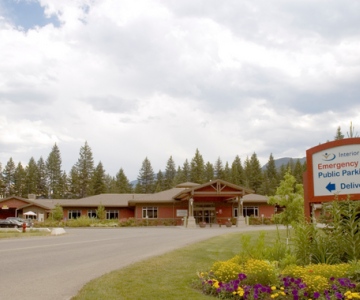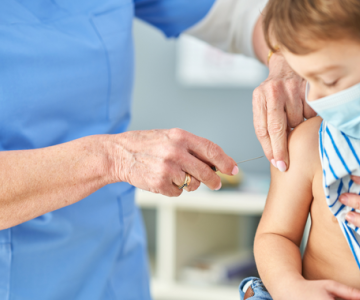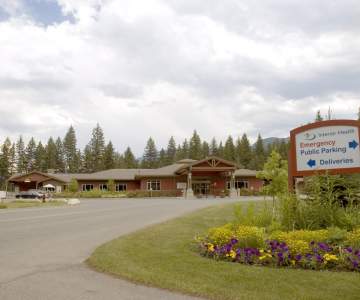Breadcrumb
- Home
- media
Explore Media
Public Service Announcement
Clearwater and area residents are advised Dr. Helmcken Memorial Hospital Emergency Department will go on diversion for eight nights, starting at 6 p.m. tonight, due to limited staffing availability. The emergency department will be open during the day.
The emergency department is on diversion overnight from 6 p.m. to 7 a.m. on Aug. 11, 12, 13, 14, 15, 16, 17 and 18.
The ED is open during those days from 7 a.m. to 6 p.m. and will return to 24-hour service at 7 a.m. Friday, Aug. 19.
During this time, all other inpatient services will continue as normal at Dr. Helmcken Memorial Hospital.
Interior Health regrets this temporary change to normal operations and reminds residents to take note of the following if they require care while the emergency department is closed:
In the event of an emergency, call 9-1-1.
Call HealthLink BC at 8-1-1 (24-hour service) if you are unsure of your need to seek emergency care.
Visit the emergency department at:
Royal Inland Hospital – 311 Columbia Street, Kamloops
100 Mile House District General Hospital – 555 Cedar Avenue South, 100 Mile House
The emergency department in Clearwater is normally open 24/7.
Toxic Drug Alert
Please see the attached document to learn more about the look, contamination, and risk associated with the current drug alert.
View more toxic drug, environmental, and COVID-19 alerts.
Public Service Announcement
Creston and area residents are advised the Creston Valley Hospital emergency department will be on diversion tonight, due to limited staff availability.
The emergency department is on diversion:
6 p.m. Friday, August 5 until 7 a.m. Saturday, August 6
Interior Health regrets this temporary change to normal operations and reminds residents to take note of the following if they require care while the emergency department is closed:
In the event of an emergency, call 911.
Visit the emergency department at:
East Kootenay Regional Hospital – 12 24 Ave N, Cranbrook
Kootenay Boundary Regional Hospital – 1200 Hospital Bench, Trail
Kootenay Lake Hospital – 3 View St, Nelson
Call HealthLink BC at 8-1-1 (24-hour service) if you are unsure of your need to seek emergency care
The emergency department in Creston is normally open 24/7.
Public Service Announcement
Clearwater and area residents are advised Dr. Helmcken Memorial Hospital Emergency Department will go on diversion for five nights, starting at 6 p.m. tonight, due to limited staffing availability. The emergency department will be open during the day.
The emergency department is on diversion overnight from 6 p.m. to 7 a.m. on Aug. 3, 4, 5, 6 and 7.
The ED is open during those days from 7 a.m. to 6 p.m. and will return to 24-hour service at 7 a.m. Monday, Aug. 8.
Interior Health regrets this temporary change to normal operations and reminds residents to take note of the following if they require care while the emergency department is closed:
In the event of an emergency, call 9-1-1.
Call HealthLink BC at 8-1-1 (24-hour service) if you are unsure of your need to seek emergency care.
Visit the emergency department at:
Royal Inland Hospital – 311 Columbia Street, Kamloops
100 Mile House District General Hospital – 555 Cedar Avenue South, 100 Mile House
The emergency department in Clearwater is normally open 24/7.
News Release
Interior Health (IH) clinics are now scheduled for children between the ages of six months and four years old with a COVID-19 vaccine specifically formulated for this age group.
All people over the age of six months can now receive protection against the COVID-19 virus.
“Vaccination against COVID-19 is still the best way to reduce the risk of getting really sick and needing to be hospitalized due to COVID-19,” said Dr. Carol Fenton, medical health officer with IH. “While children are at lower risk of severe disease from COVID-19 compared to adults, they can still get very sick. The vaccine is safe and effective in preventing serious illness from COVID-19.”
Parents and caregivers are encouraged to register their children now in the provincial system at getvaccinated.gov.bc.ca. Once registration is complete, parents will be invited to book an appointment at their local community clinic. Parents can also register children younger than six months, so they can be invited to book an appointment once the child becomes eligible for the vaccine.
Appointments are necessary for these vaccines and will be held in child-friendly local immunization clinics.
Pediatric COVID-19 vaccines are not available in pharmacies.
Vaccination helps children and families get back to many important activities that positively benefit children’s physical and mental health. The vaccine also reduces the risk of transmission to children’s close contacts, who may be at higher risk of severe illness.
For more information about COVID-19 vaccines for children, visit interiorhealth.ca.
Public Service Announcement
Ashcroft and area residents are advised the Ashcroft emergency department will be on diversion tonight due to limited staffing availability.
The emergency department will be on diversion:
5 p.m. to 10 p.m. Friday, July 29
Regular service will resume on Saturday, July 30 at 8 a.m.
There is no emergency department service during the week or overnight on weekends in Ashcroft. Regular emergency department hours are Friday, 5 p.m. – 10 p.m. and Saturday/Sunday 8 a.m. – 8 p.m.
Interior Health regrets this temporary change to normal operations and reminds residents to take note of the following if they require care while the emergency department is closed:
In the event of an emergency, call 9-1-1.
Visit the emergency department at:
Royal Inland Hospital – 311 Columbia Street, Kamloops
Call HealthLink BC at 8-1-1 (24 hour service) if you are unsure of your need to seek emergency care.
Public Service Announcement
CLEARWATER - Clearwater and area residents are advised Dr. Helmcken Memorial Hospital Emergency Department will go on diversion at 6 p.m. tonight until 7 a.m. tomorrow, due to limited staffing availability.
The emergency department is on diversion from:
6 p.m. Friday, July 29 to 7 a.m. Saturday, July 30
Interior Health regrets this temporary change to normal operations and reminds residents to take note of the following if they require care while the emergency department is closed:
In the event of an emergency, call 9-1-1.
Call HealthLink BC at 8-1-1 (24-hour service) if you are unsure of your need to seek emergency care.
Visit the emergency department at:
Royal Inland Hospital – 311 Columbia Street, Kamloops
The emergency department in Clearwater is normally open 24/7.
Public Service Announcement
Clearwater and area residents are advised Dr. Helmcken Memorial Hospital Emergency Department will go on diversion at 6 p.m. tonight until 7 a.m. Friday, due to limited staffing availability.
The emergency department is on diversion from:
6 p.m. Wednesday, July 27 to 7 a.m. Friday, July 29
Interior Health regrets this temporary change to normal operations and reminds residents to take note of the following if they require care while the emergency department is closed:
In the event of an emergency, call 9-1-1.
Call HealthLink BC at 8-1-1 (24-hour service) if you are unsure of your need to seek emergency care.
Visit the emergency department at:
Royal Inland Hospital – 311 Columbia Street, Kamloops
The emergency department in Clearwater is normally open 24/7.
News Release
People living with substance-use challenges in B.C.'s Interior will have access to more treatment and recovery supports as the Province continues to invest in new services.
View full release
-
Load More
Showing 657 of 1113





